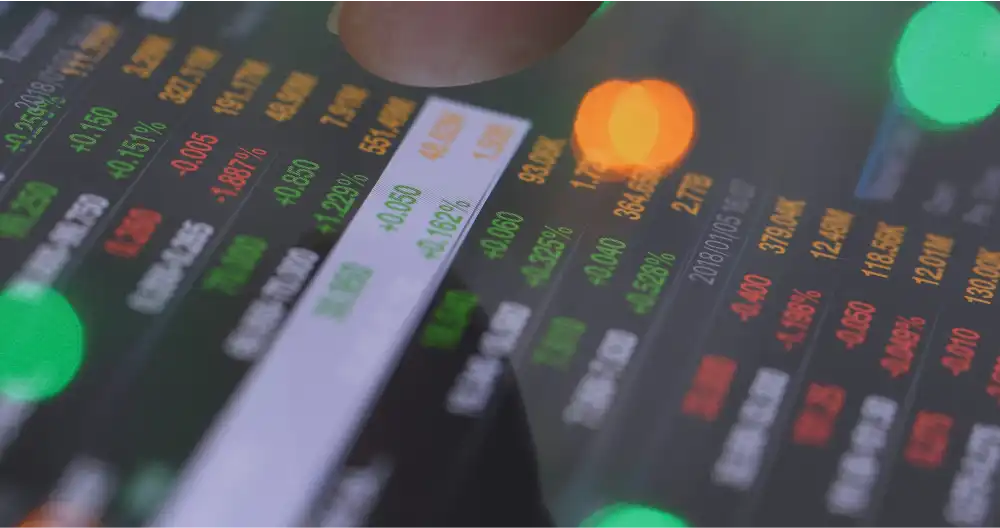
Q1 2023
Q1 of 2023 will be remembered for significant events in the financial sector, including the collapse of Silicon Valley Bank and the takeover of Credit Suisse. Despite these developments, the quarter started on a positive note, with both equity and bond markets (GBP hedged) closing with single-digit gains. However, investor sentiment was highly volatile due to various factors such as economic data, inflation concerns, and geopolitical tensions.
In January, there was a renewed appetite for risk as the US, Europe, and China showed favourable economic growth. Some economists even suggested a milder recession or its complete avoidance. Additionally, there was speculation that inflation had peaked, leading to expectations of reduced interest rate hikes or even rate cuts. China's economy reopened following the implementation of the zero-Covid policy.
However, in February, the sentiment shifted to pessimism as investors became worried about higher-than-expected inflation. This resulted in a rise in bond yields as the market anticipated a "higher for longer" interest rate environment. Inflationary pressures were particularly notable in the labor market, with firms struggling to hire and retain staff in various sectors. Unemployment remained historically low in economies like the US, Europe, the UK, and even Japan.
The collapse of Silicon Valley Bank in March and the subsequent takeover of Credit Suisse by UBS Group were the standout events of Q1. These events triggered a sell-off in the US and European financial sectors, as fears of a systemic banking collapse escalated. Silicon Valley Bank's failure was primarily due to poor risk management, highlighting the challenges arising from tighter monetary policies. Credit Suisse had been facing issues before its demise, and its announcement of financial reporting weaknesses and market stress sealed its fate. These events might lead to stricter lending standards and potentially hinder growth in developed economies.
In terms of market performance, global equities in sterling terms, as measured by the MSCI World NR Index, returned 4.81% over Q1 2023. Developed markets outperformed emerging markets, which are more susceptible to US interest rate hikes. The reopening of the Chinese economy brought optimism to emerging markets, but worsening relations between the US and China acted as a headwind.
UK equities, which outperformed global markets in 2022, underperformed in Q1 2023. The FTSE All-Share Index provided a positive return of 3.08%, but the market retreated from its all-time high in February due to banking sector troubles and economic concerns.
US equities also underperformed global equities by a small margin, with the S&P 500 posting a 4.58% gain in sterling terms. Despite market turmoil triggered by the collapse of Silicon Valley Bank and contagion risks, technology stocks saw significant gains. Technology, communications, and consumer discretionary were the best-performing sectors globally. Notable companies like NVIDIA, Meta Platforms, Apple, Amazon.com, Microsoft, and Alphabet contributed to the positive performance.
European equities outperformed global equities, with the MSCI Europe ex UK Index gaining 8.89% in sterling terms. However, the real estate sector underperformed due to concerns over weak occupancy rates and higher financing costs.
The best-performing investment style was growth, with the MSCI World Growth Index gaining 11.98% in Q1. On the other hand, the MSCI World Value Index returned -1.82%. Large-cap stocks outperformed mid and small-cap stocks, as is often the case during periods of economic uncertainty.
In the bond market, the Bloomberg Global Aggregate Index returned 0.21% in sterling terms. The year started with optimism about economic growth, driven by China's reopening, falling energy prices, and indications that inflation might have peaked. However, rising yields in February, driven by expectations of prolonged higher interest rates and concerns about inflation, led to a rally in government bonds as investors sought safer assets.
UK and US government bond yields fell over the quarter, while UK gilts and UK inflation-linked bonds returned 2.05% and 4.30%, respectively. UK corporate bonds gained 2.38%, and US corporates were up 0.69% in Q1.
Central banks continued their rate hikes during the quarter. The Federal Reserve announced two 25bps increases, the Bank of England announced hikes of 50bps and 25bps, and the European Central Bank announced two 50bps hikes.
The S&P GSCI, which tracks commodity prices, fell 7.52% in the quarter. Energy and livestock were the worst-performing sectors. Wholesale energy prices declined due to a mild winter and substantial reserves in Europe. Industrial metals saw negative performance in sterling terms, while gold performed positively due to persistent inflationary pressures.
